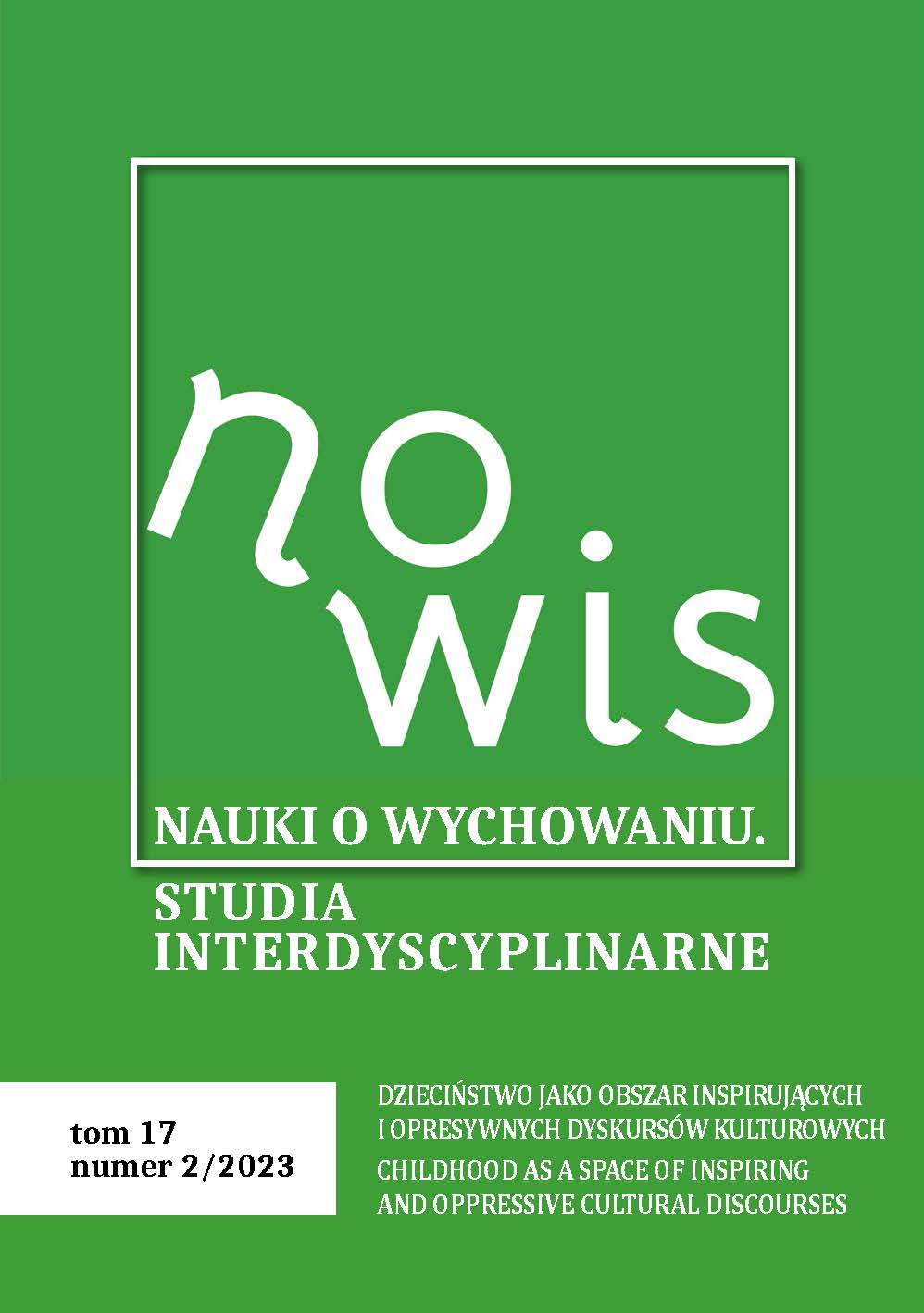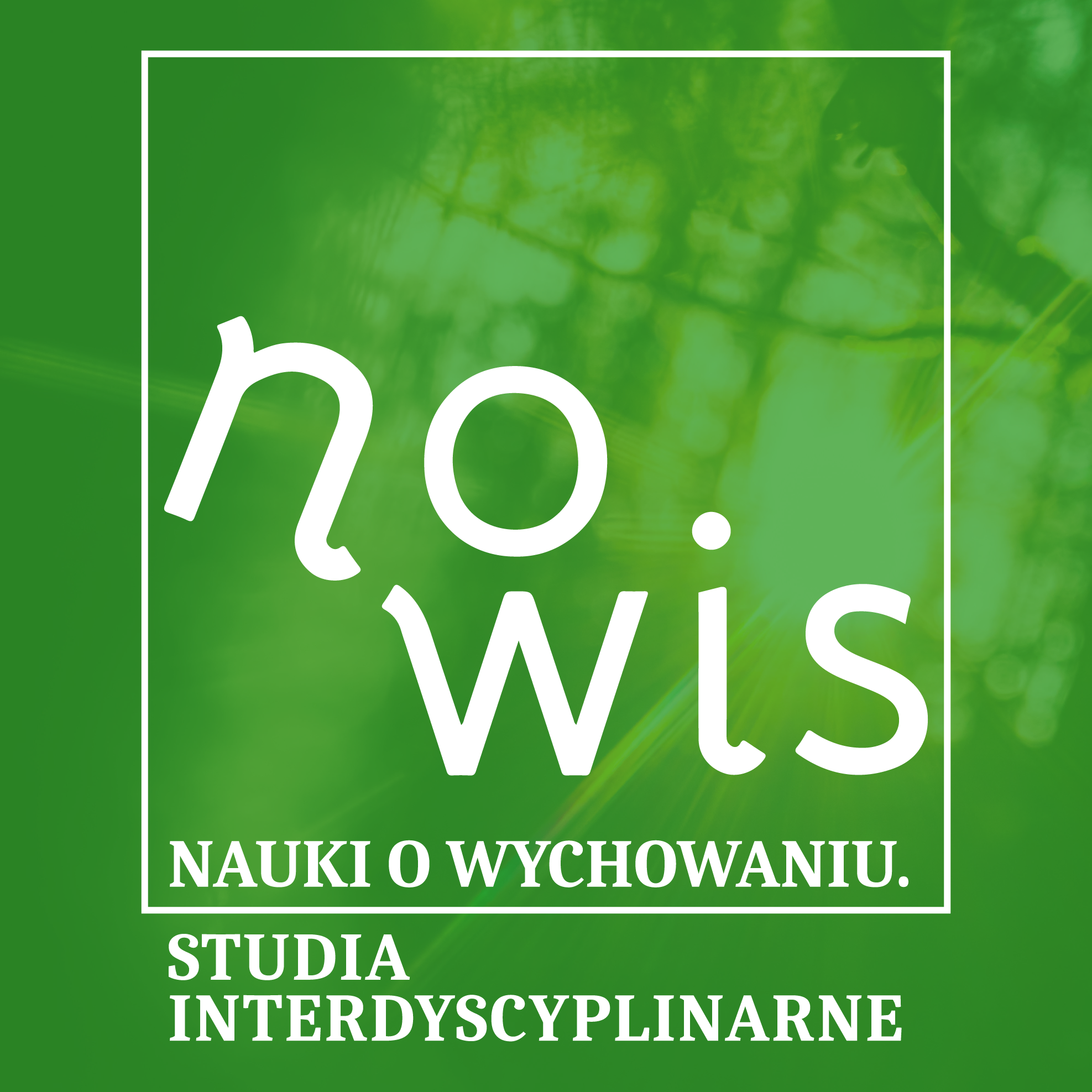Current Challenges for Preschool Primary Education
DOI :
https://doi.org/10.18778/2450-4491.17.03Mots-clés :
elementary school, heterogeneity, language development, literacy education, individualized and adaptive instruction, new school entry levelRésumé
Challenges for elementary and primary education in many areas neither occur in isolation nor are limited to individual states but often represent themselves as area-wide and complex problem situations. The text discusses how to deal with a heterogeneous student body in elementary schools, which has been exacerbated by immigration in recent years. The focus of reflection is on individual, instructional, and organizational approaches to make educational processes as fruitful as possible for all children.
Références
Achhammer B. (2016) Pragmatische Fähigkeiten bei Mehrsprachigkeit – Steigbügel oder Stolperstein? in: Diagnose und Förderung von bildungsbenachteiligten Kindern im Schriftspracherwerb. Theorien, Konzeptionen und Methoden für den schriftsprachlichen Anfangsunterricht in der 1. und 2. Jahrgangsstufe der Grundschule, E. Inckemann, R. Sigel (eds.), Bad Heilbrunn, Klinkhardt, pp. 75–88.
View in Google Scholar
Alfieri L., Brooks P. J., Aldrich N. L. (2011) Does Discovery-Based Instruction Enhance Learning?, “Journal of Educational Psychology”, no. 103, pp. 1–18, https://doi.org/10.1037/a0021017
View in Google Scholar
DOI: https://doi.org/10.1037/a0021017
Bohl Th., Kucharz D. (2010) Offener Unterricht heute. Konzeptionelle und didaktische Weiterentwicklung, Weilheim – Basel, Belz.
View in Google Scholar
Brücker H. (2022) Geflüchtete aus der Ukraine in Deutschland. Flucht, Ankunft und Leben, „IAB-Forschungsbericht”, no. 4, [online:] https://doku.iab.de/forschungsbericht/2022/fb0422.pdf (access: 10.12.2022).
View in Google Scholar
Cronbach L. L., Snow R. E. (1977) Aptitudes and Instructional Methods: A Handbook for Research on Interactions, New York, Irvington.
View in Google Scholar
Deutscher Philologenverband (2022) Befragung zum Umgang mit geflüchteten Schülerinnen und Schülern aus der Ukraine unter Schulleitungen an Gymnasien, [online:] https://www.dphv.de/wp-content/uploads/2023/01/DPhV-BDK-Ergebnispraesentation_Umgang-mit-gefluechteten-SuS.pdf (access: 09.01.2023).
View in Google Scholar
Dubowy M., Gold A. (2014) Sprachförderung im Elementarbereich: Was – wann – wie fördern? in: Das Kita-Handbuch, M. R. Textor, A. Bostelmann (eds.), [online:] https://www.kindergartenpaedagogik.de/fachartikel/kinder-mit-migrationshintergrund/2307/ (access: 09.01.2023).
View in Google Scholar
Dumont H. (2019) Neuer Schlauch für alten Wein? Eine konzeptuelle Betrachtung von individueller Förderung im Unterricht, “Zeitschrift für Erziehungswissenschaft”, no. 22, pp. 249–277, https://doi.org/10.1007/s11618-018-0840-0.
View in Google Scholar
DOI: https://doi.org/10.1007/s11618-018-0840-0
Faust G. (2006) Zum Stand der Einschulung und der neuen Schuleingangsstufe in Deutschland, “Zeitschrift für Erziehungswissenschaft”, no. 9, pp. 328–247, https://doi.org/10.1007/s11618-006-0054-8
View in Google Scholar
DOI: https://doi.org/10.1007/s11618-006-0054-8
Faust-Siehl G., Garlichs A., Ramseger J., Schwarz H., Warm U. (1996) Die Zukunft beginnt in der Grundschule. Empfehlungen zur Neugestaltung der Primarstufe, Reinbek bei Hamburg, Rowohlt-Verlag.
View in Google Scholar
Fischer C. (2014), Individuelle Förderung als schulische Herausforderung, Berlin, Friedrich-Ebert-Stiftung.
View in Google Scholar
Fürstenau S., Niedrig, H. (2011) Die kultursoziologische Perspektive Pierre Bourdieus: Schule als sprachlicher Markt in: Migration und schulischer Wandel: Mehrsprachigkeit, S. Fürstenau, M. Gomolla (eds.), Wiesbaden, VS Verlag für Sozialwissenschaften, https://doi.org/10.1007/978-3-531-92659-9
View in Google Scholar
DOI: https://doi.org/10.1007/978-3-531-92659-9_4
Götz M. (2014) Schuleingangsstufe in: Handbuch Grundschulpädagogik und Grundschuldidaktik, W. Einsiedler, M. Götz, A. Hartinger, F. Heinzel, J. Kahlert, U. Sandfuchs (eds.), 4th. edition, Bad Heilbrunn, Klinkhardt, pp. 82–92.
View in Google Scholar
Gruehn S. (2000) Unterricht und schulisches Lernen, Münster, Waxmann.
View in Google Scholar
Hardy I., Ionen A., Möller K., Stern E. (2006) Effects of Instructional Support within Constructivist Learning Environments for Elementary School Students’ Understanding of “Floating and Sinking”, “Journal of Educational Psychology”, no. 98, pp. 307–326, https://doi.org/10.1037/0022-0663.98.2.307
View in Google Scholar
DOI: https://doi.org/10.1037/0022-0663.98.2.307
Hartinger A. (2005) Verschiedene Formen der Öffnung von Unterricht und ihre Auswirkung auf das Selbstbestimmungsempfinden von Grundschulkindern, “Zeitschrift für Pädagogik”, no. 51, pp. 397–414.
View in Google Scholar
Hattie J. (2003) Teachers Make a Difference, What Is the Research Evidence?, paper presented at the Building Teacher Quality: What does the Research Tell Us ACER Research Conference, Melbourne, [online:] http://research.acer.edu.au/research_conference_2003/4/ (access: 10.01.2023).
View in Google Scholar
Hellmich F. (2010) Einführung in den Anfangsunterricht, Stuttgart, Kohlhammer, https://doi.org/10.17433/978-3-17-022864-1
View in Google Scholar
DOI: https://doi.org/10.17433/978-3-17-022864-1
Helmke A. (2003) Unterrichtsqualität – erfassen, bewerten, verbessern, Seelze, Kallmeyer Verlag.
View in Google Scholar
Helmke A. (2009) Unterrichtsqualität und Lehrerprofessionalität. Diagnose, Evaluation und Verbesserung des Unterrichts, Seelze, Kallmeyer Verlag.
View in Google Scholar
Helmke A., Hosenfeld I., Schrader F.-W. (2002) Unterricht, Mathematikleistung und Lernmotivation in: Die Studie MARKUS – Mathematik-Gesamterhebung Rheinland-Pfalz, Kompetenzen, Unterrichtsmerkmale, Schulkontext, A. Helmke, R. S. Jäger (eds.), Landau, Verlag Empirische Pädagogik, pp. 413–480.
View in Google Scholar
Hertel S. (2014) Adaptive Lerngelegenheiten in der Grundschule: Merkmale, didaktisch-pädagogische Schwerpunktsetzungen und erforderliche Lehrerkompetenzen in: Individuelle Förderung und Lernen in der Gemeinschaf, series: Jahrbuch Grundschulforschung, vol. 17, B. Kopp, S. Martschinke, M. Munser-Kiefer, M. Haider, E.-M. Kirschhock, G. Ranger, G. Renner (eds.), Wiesbaden, Springer VS, pp. 19–34, https://doi.org/10.1007/978-3-658-04479-4_2
View in Google Scholar
DOI: https://doi.org/10.1007/978-3-658-04479-4_2
Hill H. C., Rowan B., Hall D. (2005) Effects of the Teachers’ Mathematical Knowledge for Teaching and Students’ Achievement, “American Educational Research Journal”, vol. 42, no. 2, pp. 371–406, https://doi.org/10.3102/00028312042002371
View in Google Scholar
DOI: https://doi.org/10.3102/00028312042002371
Johnson D. W., Johnson R. T. (2002) Cooperative Learning Methods: A Meta-Analysis, “Journal of Research in Education”, vol. 12, no. 1, pp. 5–24.
View in Google Scholar
Klieme E., Warwas J. (2011) Konzepte der individuellen Förderung, “Zeitschrift für Pädagogik”, no. 57, pp. 805–818.
View in Google Scholar
Kulik J. A. (1992) An Analysis of the Research on Ability Grouping. Historical and Contemporary Perspectives. Research-Based Decision-Making Series, University of Connecticut, National Research Center on the Gifted and Talented.
View in Google Scholar
Lewis R. (1986) What Is Open Learning?, “Open Learning, The Journal of Open, Distance and E-Learning”, no. 1, pp. 5–10, https://doi.org/10.1080/0268051860010202
View in Google Scholar
DOI: https://doi.org/10.1080/0268051860010202
Lipowsky F. (2007) Was wissen wir über guten Unterricht?, “Friedrich Jahresheft”, no. 25, pp. 26–31.
View in Google Scholar
Lipowsky F., Lotz M. (2015) Ist Individualisierung der Königsweg zum Lernen? Eine Auseinandersetzung mit Theorien, Konzepten und empirischen Befunden in: Begabungen entwickeln und Kreativität fördern, F. Mehldorn, F. Schulz, K. Schöppe (eds.), München, kopaed Verlag, pp. 155–219.
View in Google Scholar
Lou Y., Abrami P. C., Spence J. C., Poulsen, C., Chambers, B, d’Apollonia, S. (1996) Within-Class Grouping: A Meta-Analysis, “Review of Educational Research”, no. 66, pp. 423–458, https://doi.org/10.3102/00346543066004423
View in Google Scholar
DOI: https://doi.org/10.3102/00346543066004423
Martschinke S. (2015) Facetten adaptiven Unterrichts aus der Sicht der Unterrichtsforschung in: Lernprozessbegleitung und adaptives Lernen in der Grundschule, series: Jahrbuch Grundschulforschung, no. 19, K. Liebers, B. Landwehr, A. Marquart, K. Schlotter (eds.), Wiesbaden, Springer VS, pp. 15–32, https://doi.org/10.1007/978-3-658-11346-9_2
View in Google Scholar
DOI: https://doi.org/10.1007/978-3-658-11346-9_2
Meyer H. (2004) Was ist guter Unterricht?, Berlin, Cornelsen.
View in Google Scholar
Michlbauer K., Mergele L. (2022) Integrationsperspektive von ukrainischen Geflüchteten im deutschen Schulsystem, “ifo Schnelldienst”, no. 8, pp. 29–34.
View in Google Scholar
Morek M., Heller V. (2012) Bildungssprache – Kommunikative, epistemische, soziale und interaktive
View in Google Scholar
Aspekte ihres Gebrauchs, “Zeitschrift für angewandte Linguistik”, no. 57(1), pp. 67–101, https://doi.org/10.1515/zfal-2012-0011.
View in Google Scholar
DOI: https://doi.org/10.1515/zfal-2012-0011
Peschel F. (2005) Offener Unterricht. Idee, Realität, Perspektive und ein praxiserprobtes Konzept zur Diskussion, Teil I, Allgemeindidaktische Überlegungen, Baltmannsweiler, Schneider Verlag Hohengehren.
View in Google Scholar
Peterson P. L. (1980) Open Versus Traditional Classroom, “Evaluation in Education”, no. 4, pp. 58–60, https://doi.org/10.1016/0191-765X(80)90017-8
View in Google Scholar
DOI: https://doi.org/10.1016/0191-765X(80)90017-8
Prengel A. (2007) Diversity Education – Grundlagen und Probleme der Pädagogik der Vielfalt in: Diversity Studies – Grundlagen und disziplinäre Ansätze, G. Krell, B. Riedmüller, B. Sieben, D. Vinz (eds.), Frankfurt, Campus-Verlag, pp. 49–67.
View in Google Scholar
Rehle C., Thoma P. (2003) Einführung in grundschulpädagogisches Denken, Donauwörth, Auer.
View in Google Scholar
Roos J., Polotzek S., Schöler H. (2010) EVAS – Evaluationsstudie zur Sprachförderung von Vorschulkindern: Abschlussbericht, Heidelberg, Pädagogische Hochschule.
View in Google Scholar
Roßbach H.-G., Wellenreuther M. (2002) Empirische Forschungen zur Wirksamkeit von Methoden der Leistungsdifferenzierung in der Grundschule in: Heterogenität, Integration und Differenzierung in der Primarstufe, F. Heinzel (ed.), Opladen, VS Verlag für Sozialwissenschaften Wiesbaden, pp. 44–57, https://doi.org/10.1007/978-3-322-99542-1_4
View in Google Scholar
DOI: https://doi.org/10.1007/978-3-322-99542-1_4
Slavin R. E. (1996) Success for All, Lisse, Swets & Zeitlinger.
View in Google Scholar
Ständige Wissenschaftliche Kommission der Kultusministerkonferenz (SWK) (2022) Stellungnahme zur Unterstützung geflüchteter ukrainischer Kinder und Jugendlicher – Integration in das Bildungssystem, Bonn, [online:] www.swk-bildung.org/veroeffentlichungen (access: 10.01.2023).
View in Google Scholar
Stanat P., Schipolowski S., Schneider R., Sachse K. A., Weirich S., Henschel S. (eds.) (2022a) IQB-Bildungstrend 2021. Kompetenzen in den Fächern Deutsch und Mathematik am Ende der 4. Jahrgangsstufe im dritten Ländervergleich, Münster – New York, Waxmann, https://doi.org/10.31244/9783830996064
View in Google Scholar
Stanat P., Schipolowski S., Schneider R., Sachse K. A., Weirich S., Henschel S. (eds.) (2022b) IQB-Bildungstrend 2021. Kompetenzen in den Fächern Deutsch und Mathematik am Ende der 4. Jahrgangsstufe im dritten Ländervergleich. Pressemappe, Münster – New York, Waxmann, [online:] https://www.iqb.hu-berlin.de/bt/BT2021/Bericht/ (acces: 10.01.2023).
View in Google Scholar
DOI: https://doi.org/10.31244/9783830996064
Stiftung Bildungspakt Bayern (2014) Schulversuch Flexible Grundschule. Dokumentation. Ergebnisse. Empfehlungen für die Praxis, [online:] https://www.km.bayern.de/epaper/flex_grundschule/files/assets/basic-html/index.html#1 (access: 14.01.2023).
View in Google Scholar
Terhart E. (2006) Kompetenzen von Grundschülerinnen und -lehrern. Kontext, Entwicklung, Beurteilung in: Grundschule in Entwicklung, P. Hanke (ed.), Münster, Waxmann, pp. 233–248.
View in Google Scholar
Wildemann A. (2015) Heterogenität im Sprachlichen Anfangsunterricht. Von der Diagnose bis zur Unterrichtsgestaltung, Seelze, Kallmeyer in Verbindung mit Klett.
View in Google Scholar






 Le site web de la revue, hébergé par l'équipe éditoriale de NOWIS se trouve sur la plate-forme Index Copernicus:
Le site web de la revue, hébergé par l'équipe éditoriale de NOWIS se trouve sur la plate-forme Index Copernicus: 





